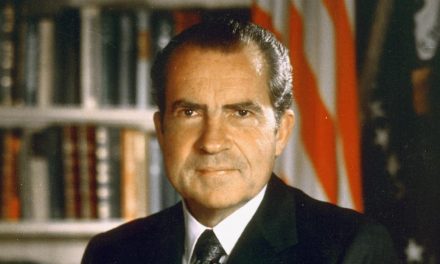EDUCATION MANAGEMENT – VOLUME IV – CHAPTER 3
BLUEPRINT FOR EXCELLENCE
FIND A BETTER WAY EVERYDAY
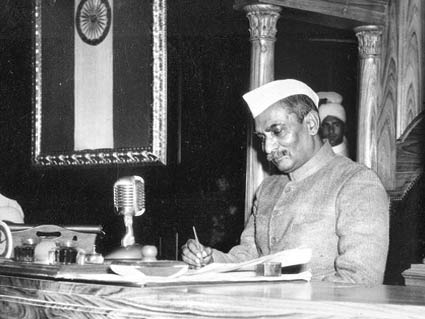
“I never knew what it was to be second” – Dr. Rajendra Prasad
EXCELLENCE – An eternal quest for perfection – what Roger Federer attempts with every match. Today’s best has to be bettered tomorrow. A race for being the best in everything at all times. After assuming the office of President, Dr. Rajendra Prasad was asked by a Reporter “In your home town we were told that you stood first in all subjects in all examinations in all classes from Class 1 to M.A. and M.L. Is that true?” Dr. Prasad replied, “I never knew what it was to be second”. When his friend told Chintaman P. Deshmukh that he had come first in the I.C.S. Examination and it is surprising for them, he replied, “May be surprising for you, but not for me, because coming first is a routine thing for me”.
Principalship is a permanent race for excellence. If you want your staff and students to be excellent, then you must be excellent to show them the way for excellence. So every day is a today – A horizon of excellence. To make everyday a day of excellence what should you do?

Neil Armstrong
You have to reposition yourself daily as a Leader of Excellence. You just be there first. Remember Charles Lindberg and Neil Armstrong:- who flew first and who stepped on the Moon first – and so remembered till today. To take your staff with you on the path of excellence, what should you do? Yes, the author used to find the answer in the term, “Cherchez Le Creneau” – look for the hole” – an opening in the staff – his work, his relationships, his knowledge, his commitment, his alignment with the institution’s goals, his activity orientation and develop him in that “opening”, review him in these areas not just as an year end routine ritualistic appraisal. The author followed the “G.E. Way” (General Electric) – an informal unspoken personal/personnel review – in the play field, in the meeting halls, in the staff room, in the library, during tea with him, informal corridor conversations, his interaction with parents, the office staff, in camps in Sports Meet, on the Annual Day, CCA periods, Examination hall, outside duty – Umpteen tough points. An intense people focus – measuring, gauging, assessing, weighing, evaluating everyone in a variety of ways
– that defined his educational management. He gave the staff the GE slogan
– “Finding a better way, everyday”.
In your quest for excellence you will find four types of staff to see and sift.
a) The staff who delivers on his commitments – to be groomed.
b) The staff who fails on commitments and not aligned with the institution.
– To be given the golden handshake
c) The staff who fails to keep his deadline but is aligned with the institutional goals – may be tried with a job rotation in a different environment.
d) The staff who fulfills commitments shows results but is not at all in – A parasitic, a leech has to be got rid off.

Jack Welch
Jack Welch was the author’s Icon – one who established his integrity and never oscillated from it. His people might not have toed his line on every issue. But they always knew that he was straight and honest. Jack (and the author) never had two agendas – only the straight way. The author always believed that personal intensity of the top person decided the institution’s intensity – not the hours he put in but the high quality of his work and how many people he “TOUCHED”
– That mattered because it will become contagious down the line.
IF YOU DON’T GO FORWARD, YOU WILL GO BACKWARD

The author acted like a Bee-pollinating ideas – taking the best of one and transferring it to others was the secret of his success. He found the “Real Him” in him and gave each one the work right for him. He always told the Principals that arrogance and wearing ambition on one’s sleeve were two dangerous killers, while meaningful self-confidence is a winner. He always told them that the way to excellence depended on their courage to be open. To welcome change, new thoughts regardless of who ,to have their views challenged and enjoy an intellectual duel.
The author always believed that there was always someone better than himself and so looked for the best performers, What they did- and adopt/adapt it. He always broke down a problem by analysis and tried to develop a solution by synthesis. That is the way for excellence he found.
There are three types of leaders striving for excellence.
a) THE CREATORS – Trail blazers who create a new path, a new style:-
Sri. K. Kuruvilla Jacob, Kulapath Sri. S. Balakrishna Joshi and Sri. S. Natarajan were trail blazers – each with a different style.
b) THE CAPITALIZERS –
Mrs. Y.G. Parthasarathy (PSBB)
Dr. Kishore Kumar (St. John)
Smt. Sai Meera (Sri. Sathya Sai School)
fall in this category of people who make full use of technology.
c) THE CONSOLIDATORS-
People who make new ideas work consistently and profitably –
Mrs. Padmini Sreeraman (Hindu Senior)
Mrs. Kalpalatha Mohan (Sri Sankara Vidyashram)
Mrs. Prema Shantha (Bharat Sr. Sec. School)
Mrs. Lakshmi Srinivasan (P.S. Sr.Sec.School)
come under this category.
People who go after excellence have the strength of long held moral values. They are aware that the cost of being ethic is very high. They know that while morality is costly, immorality is also not cheap as its long term effect can be catastrophic. A Principal was famous for building up his school over 20 years. But once the lure of the lucre took hold of his mind, he started his abysmal fall. Now he is a rolling stone-a grasshopper – because his “Reputation” goes before him!
Azim Premji, Chairman of WIPRO once said: – “Once you start calculating the numbers, it is almost a forgone conclusion that you will end up compromising your values”. Azim Premji enjoys unqualified reputation for integrity.

Azim Premji
When the author took over as Deputy Director (Training) South Zone – Ministry of Community Development his Mentor and Director Sr. T.S. Avinashilingam advised him:-
“If your hands are clean you are fearless person. If you are fearless, you are a free man”. The author always told the principals “Remember you are only the trusted trustee of public money”.
People of excellence are also masters of reinvention. They know when to react or respond. They know how to act and also whom to act. They have a gift of ‘sensing’ the goings on and ‘catch’ the opportunity, when it arises and also act swiftly.
People of excellence are continuous learners who view learning as an ongoing process that can take place at any time and any place, who have the ability to learn, who view life itself as a “Learning continuum’. For them everything becomes a learning opportunity and a learning experience. They know that if they don’t go forward, they are actually going backwards.
HANDLING HUMAN CAPITAL

People of excellence are those who have internalized the ideas expressed by Peter Singe in his “Fifth Discipline” viz.,
“Real learning gets to the heart of what it means to be human. Through learning, we recreate ourselves. Through learning, we become able to do something we never were able to do. Through learning, we re-perceive the world and our relationship to it. Through learning, we extend our capacity to create, to be part of the generative process of life. There is within each of us a deep hunger for this type of learning”.
People of excellence see their people as human capital – not as am expendable resource, but as a valuable asset to be developed. Human Resource Management has become Human Capital Management. They know that it takes a long time to produce human capital – the way an institution’s staff learn and build together. This forms an important part of an institution’s value hiring cost (Salary) and training cost (Courses). But in a school, like Vidya Mandir, Mylapore, Chennai, where you can’t talk to any teacher with less than 20 years service in that school. This can’t be quantified in monetary terms.
People of excellence are gifted in building this human capital.
As a Principal you have to deal with 5 types of parents (Clients/Customers):-
a) Those who have to be pushed away
In one school a boy was incorrigible – A bully, a wayward, a vagabond, indiscipline, not studious. The Principal and Teachers felt that this one rotten apple will spoil the whole stock. So he convinced the parent to take the boy out and put him in a boarding school known for its strict discipline.
b) Those who are unwittingly driven away
At some point a parent may have felt offended by a staff’s behavior, attitude or unguarded words. He may decide to pull his child out.
c) Those who are attracted by outside units
Some parents are weaned by the glam quotient of another school.
d) Those who are lured by lower fees
Some new schools indulge in undercutting by posing a lower fee structure.
e) Those who have to move
Due to transfer or relocation some of them may come back on their return, if they are captivated by your brand.
Principalship (of Excellence) is based on 3 types of trusts:
1) Strategic trust
Trust in the work done
2) Organizational Trust
Trust in the way Education Management is practiced
3) Personal Trust
Trust in the persons heading the institution
The schools run by Sri Ramakrishnan Mission testify to these three.
According to Robert M. Galford and Anne Seibold Drapeau (“Trusted Leader” ) you can practice two approaches.
a) The inside out
Improving your traits, talents strength and behavior from one’s own understanding of oneself
b) The outside – In
Developing your characteristics to see in you what others see in you:-
An equation to help you:-
T= C+R+I+S
T- Trust Worthiness
C – Credibility
R – Reliability
I – Intimacy
S – Self-orientation
Have an equal mix of all these. They list out the following as the benefits of “Trusted Leadership” .(Excellence and Trust are two sides of the coin called Principalship)
- It frees people

- It fuels passion
- It provides focus
- It fosters innovation
- It gives people the time to get it right
- It is contagious
- It helps hire people on the same wave length
- It improves the quality of work
- It helps retain talented staff
- It reduces expenditure
High ability to motivate is a hall mark of a leader of excellence. So you have to know the different forms of motivational stimuli as identified by David Freemantle in “The Stimulus Factor” – (Prentice-Hall)
- Aspirational Stimuli
- Learning Stimuli

- Discover Stimuli
- Diversionary Stimuli
- Reward Stimuli
- Financial Stimuli
- Personal value Stimuli
- Inspirational Stimuli
- Altruistic Stimuli
- Social Stimuli
- Emotional Stimuli
- Demand Stimuli
- Environmental Stimuli
- Freedom Stimuli
- Change Stimuli
- Spiritual Stimuli
A Principal of Excellence uses five dimensions of services to nurture customer (Staff, Students & Parents) relationship such as,
- Reliability – He will stand by his word
- Assurance – His word is the guarantee
- Tangibles – Close contacts – Birthday cards, Address in the assembly
- Empathy – when parents, staff or students face some personal problems empathizing will go along way to assuage their feelings.
- Responsiveness – When they meet you with a request or a demand, show a positive response even if you are unable to accept to it.
Projecting an image of excellence is as important as performing in an excellent manner. An expert image has to be built up. Amassing a slew of degrees will not show you as an expert. Your expertise must be made visible through your communication.
Strive to excel, and not at being perfect. Put yourself in your competitor’s shoes, and ask “How can we beat ourselves?” Ask another question also “What would we do if we have to start the school from scratch?”.
Your excellence is not in presupposing the future and plan for it. The future can’t be foreseen exactly. People will pay only for what they value. So plan to build a school of value – A school that will be valued by the people.
Take care of the 3 emotional E’s in emotional marketing of your school.
- Equity – The trust your school has earned.
- Experience – The myriad interactions your customers have in the schools.
- Energy – The investment of time and effort your customer spends.
Switch roles. Ask,
- What would I want from the school if I were a student. A parent and a staff? This was the constant question in the author’s mind.
- How would I like to be treated?
 A Principal told the author that he was highly stressed because he was always worried about what his staff and parents would be thinking of him. The author told him “ Only you are wasting your time thinking about what others think about you. In reality they may not be thinking about you, as they have enough problems in their own lives to worry about, forget about others. Think about how you can go ahead”.
A Principal told the author that he was highly stressed because he was always worried about what his staff and parents would be thinking of him. The author told him “ Only you are wasting your time thinking about what others think about you. In reality they may not be thinking about you, as they have enough problems in their own lives to worry about, forget about others. Think about how you can go ahead”.
This may happen even with the staff. During an inspection visit the author told the staff “If anyone has a problem you can meet me after this staff meeting, I will stay on for an hour”. One staff member told him” I am highly worried everyday as to what the Principal will think about me when he goes on his round looking at my class”. For some, this is a “Principal phobia”!
AN IDEAL – SCHOOL AND PRINCIPAL
 When the Author visited Mangalore, the Principal of KV there, insisted that he should visit “IDEAL” – The famous Ice cream parlor there. He said, “your trip to Mangalore will be incomplete without a visit to – IDEAL”.
When the Author visited Mangalore, the Principal of KV there, insisted that he should visit “IDEAL” – The famous Ice cream parlor there. He said, “your trip to Mangalore will be incomplete without a visit to – IDEAL”.
The author told him KVS will be happy if you make your KV just like that. Any one transferred to Mangalore should be happy about their transfer and say no worry about my child’s education because KV is there”.
The author had the good fortune to enjoy the association and friendship of Sri. Y. Srinivasan, Head Master of City Municipal High School in his early days as a Professor in the Teacher’s college of Sri Ramakrishna Mission Vidyalaya, Coimbatore. He once said “I have to keep my school accounts perfect. I am a trustee . I can’t think of misusing even a single rupee of I do. Then I am stealing in my own home. I am part of the Municipality. It is not the Commissioner’s money. It is public money.
A Principal of excellence! He also cited an example.
“My relative is an officer in Brooke Bond company. That company is very particular about its image. It wants its officers to travel only by I class when they go on tour. And if anyone is found guilty of any malpractice, he is immediately terminated”.
Coimbatore was lucky to have a great citizen, Sri Rama Ranganathan – An Engineer by qualification, A tennis player by passion, A fitness enthusiastic and a great educationalist. He started a school “Perks School” and gifted the children a theatre (200 capacity) to screen films. In 1990, when the author visited Coimbatore KV for inspection, he took him to his school, shoed the theatre and requested the author for suggestions to improve its utility.
The author told him:-
“Make it a “Teaching Theatre”. Build an annex where teachers can discuss teaching methods in a relaxed atmosphere even as the coffee shop is becoming the social nerve centre of the local community – Starbuck’s “coffee theatre.” Collect films (15mm) and filmstrips relevant to the lessons in each subject for every class. This is an arduous task to be spread over a period of time. Ask the theatre in-charge to make a list class wise, subject wise and lesson wise. Make a time table to suit the lesson plans of the teachers, circulate, make the student see the film/strip. Before the lesson is taught, they will understand the lesson better.
Mr. Rama Ranganathan, a person always with an eye for anything new said he will persue the idea vigorously.
EXCELLENCE – A TO Z
The author has learnt from experience that the following attributes contribute to excellence.
a) Clarity regarding objectives
b) Absence of EGO
c) Absolute commitment
d) Full concentration on work
e) Lack of fear of not being successful
f) Prioritizing work schedule
g) Equipoise regarding ups and downs in life
h) Proper delegation
i) Proper assessment of staff
j) Not allotting too many for a work
k) Developing strong leadership among the senior staff
l) Plan everything in time
m) Never allowing success to get into our head
n) Proper delegation of responsibility coupled with accountability
o) Not involved in too many activities at one time
p) Upgrading the thinking of the staff, students & parents
q) For any work of value, recognition will follow automatically
r) Equip with skills of man management, materials management and money management
s) Use technology for reinforcing teaching
t) Don’t neglect children whose names begin with the last nine alphabets – R to Z. Normally they are allotted to the back benches. These who are at the rear of the queue feel neglected and so develop a habit on acting forcefully and fast in their self-interest and they respond faster to commands and requests. This is the finding of a research by Kurt Carlson of George Town University – USA – “The last name effect”.
u) Balance the various teams found among the staff.
v) Encourage staff who look for short term successes and long term excitement
w) Give each a chance to prove himself/herself. At the same time we should prove ourselves every day.
x) Anything hard or painful, we have to let us do it quickly. Ensure all understand what and why we are doing.
y) Personal leadership should be visible
z) Superb execution – doing the right thing quicker, better, frequently and more effectively than others.
CONCERN FOR YOUR STAFF

Your Excellence should be visible not only in the academic area but also in the welfare of your staff. For this take a leaf out of the Cadbury & Co. The Cadbury promoters of the chocolate and coco factories in Great Britain in the 19th Century were rooted in a strong religious background. They were keen on making profit. But were determined to build their business on ethical foundations. They believed that only happy employees will give happy results. They were interested in the quality of their lives and so built, both the factories and houses for their staff as an example for others to follow.
So like that, alongside your school building, build quarters for your staff. For heaven’s sake please don’t allot the houses on the basis of designation but on the size of the family. But collect rent on the basis of his salary. Then you are developing an egalitarian society. Sri.K.S.Ganapathi ,Correspondent,Sri Akhilandeswari Sr.Secondary School,Srirangam has done like this. Please think about this.
EVERY STORY – A MANAGEMENT LESSON
Our folklore parables will give you some insights into management techniques.
When a pond began to dry up, among the three fish living there, one advised the others to leave before it got fully dried up and it left. A little later when some people came and said, they will come after some time, the second fish woke up and left but when they came the 3rd one got caught.
Like the first one see change well in advance and take action accordingly.
Or like the second one see the change coming in the nick of time. Act ere it is too late.
Or like the third one some have blinker and don’t see the deluge coming up and get devoured by that.
A Middle east proverb advises “kn ow to come out before going in”. Abhimanyu knew how to break the Chakravyuha. Get into the enemy but didn’t know how to get out of it. So he was ambushed and killed by the Kauravas.
ow to come out before going in”. Abhimanyu knew how to break the Chakravyuha. Get into the enemy but didn’t know how to get out of it. So he was ambushed and killed by the Kauravas.
So before embarking on an activity keep an exit route ready in case the project fails to take off.
Your focus shall be like Arjuna’s on the bird’s eye only.
Every story has got something to tell you.
- The man who was digging a tunnel for the Pandavas to escape from the Lac Palace telling Arjuna not to waste his time talking.
- Draupadi laughing at Duryodhana when he visits her palace and slipped and fell thinking there was water.
- Duryodhana insulting Vidhura and make him breaks his bow.
- Yudhishtra not asking Krishna to play dice on his behalf opposite Sakuni.
- Krishna waiting patiently till Sisupala abused him 99 times.
- Yudhistra asking the Yaksha to give Nakula back and not Bhima or Arjuna
- Krishna asking Arjuna to get down first from the Chariot
- Find out what management lessons these incidents can teach you.
LOOK INSIDE

Your excellence in Education Management should help you to develop a “Boroscope”(one used to look into the inside of Boeing engine without dismantling it) to deliver into the minds and hearts of your staff. By observing their faces, eyes, speech pattern, body language, emotions, lowered head, becoming an isolate. Recluse – all those will show that something is wrong with a person. The author once saw a newly married master (who was very cheerful and active earlier) becoming quite sullen, morose and withdrawn. He invited him for dinner at home and then took him out for a long walk. With a little conversation laced with empathy, he found out that even 2 months after the wedding, consummation has not taken place because the bride (his aunt’s daughter who was adamant to marry him) avoided any relationship. The author told him that a woman will behave like that if she suffered from the following psychic disorders:-
- Tokophobia – Afraid of child birth
- Gamophobia – Afraid of marriage
- Clinophobia – Afraid of going to bed
- Androphobia – Afraid of males
- Gymnophobia – Afraid of nudeness
- Maieusiophobia – Afraid of getting pregnant
So the author advised him to take her to take a psychiatrist/marriage counselor. After a few months they started leading a happy life.
In an atmosphere of excellence there is no place for sycophancy and flattery and Yes Minister ship. The author had seen some teachers fawning on the Principal and some Principals playing second fiddle to their higher authorities. In one staff meeting the author told them about half a dozen people who had unusually weird notions of their superior status.
- An Indian Maharaja expected all to yawn wherever he yawned.
- Anyone displeasing a Roman King will be presented with a dead dog.
EXCELLENCE IS SETTING YOUR SCHOOL IN MOTION
Excellence lies in understanding each staff
- His skills and knowledge
This is easy to behold, but highly changeable according to situation.
- The ‘can do’ factors
His background and experience.
- The ‘will do’ factors
These motivate actual behavior.
They don’t change.
Key to the selection of a person.
Excellence is the child of confidence which is built on facing facts and taking responsibility, cultivating contacts and collaboration and taking initiative and innovation.
Leadership usually comes in pairs or trio’s. Nelson Mandela always reported to his partners Walter Sisulu and Oliver Tambo. Hitler had his Goebbels and Goering. Gandhiji had Nehru, Patel and Rajaji, but only one takes the final call.
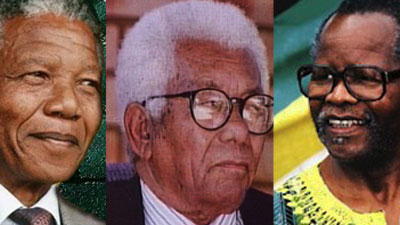
Nelson Mandela – Walter Sisulu – Oliver Tambo
Your Excellence should help ensure that the staffs are ready to overcome any crisis built into the system, a keenness for spotting opportunities inside and outside the institution and make your staff to look up to you. Your excellence should make you a person remembered for.
Excellence helps you to discern the contributions of staff and find out “what is noise and what is meaningful”. As Peter Drucker says “Excellence helps you in HCM – Human Capital Management “which is all about acknowledging, anticipating and acting on the impact of human actions”
Excellence helps you to take the lead, to break the ice with a few open – ended questions such as:
- Kindly tell me about….
- What was that experience like for you
- How did you feel about it
- What brought you to that point?
These will help you set the tone for discussion, maintain the conversation and create link.
Develop excellence of the type exhibited by: –
- Andy Grove of Intel

Bill Gates
- Bill Gates of Microsoft
- Steve Jobs of Apple
- Warren Buffett of Berkshire Hathway
- Sam Walton of Wal-Mart
- Jack Welch of GE
- Michael Dell of Dell Inc.
- Peter Drucker – Management Guru
- Mary Kay Ash of Mary Kay Inn
- George Soros of Sores Fund
- James Burke of Johnson & Johnson
- Louis V. Gerstner of IBM
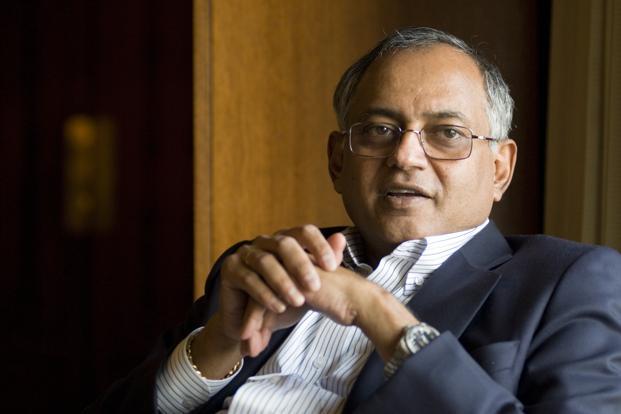
Venu Srinivasan
- Richard Branson of Virgin
- Ramadorai of TCS
- Muthuraman of TATA Steel
- Anand Mahindra of M&M
- Kumarmangalam Birla
- Sivasailam of Amalgamations
- T.S. Krishna of TVS
- Suresh Krishna of TVS
- Venu Srinivasan of TVS
- Mallika Srinivasan of TAFE
- Kasturi of The Hindu
- M.V. Arunachalam of Murugappa
- Narayanan of Colgate
Find out their unique Excellence Quotient and imbibe it.
Donald Trump of USA is the very definition of the American success story, continually setting standards of excellence. He is a billionaire in money. You should be a billionaire in ideas. Trump has some clues for you to achieve excellence.
- Don’t take vacations
- If you are not enjoying your work, you are in the wrong job
- Have a short attention span
- Use your imagination well
- By listening to the first three words of a person you must be able to understand him
- Cut down sleeping time
- Under estimation by others his sometimes an advantage for you
- Curiosity will make you feel alive and helps you understand the world around you
- Feel as if you are working for yourself
- Take care of your appearance
- Be concise in the meetings
- Promote yourself.

Donald Trump
If you want to learn more from TRUMP read his “Think like a billionaire” (Random House).
Your excellence is how you use your bucket – The invisible bucket. You are constantly emptying or filling it up, depending on what others do or say to you. A full bucket makes you feel great and an empty one makes you despondent.
You also have an invisible dipper according to Tom Rath & Donald O Clifton – (“How full is your bucket”-Gallup press). If you use your dipper to fill other peoples’ buckets through your positive words or actions in that process we fill our buckets also. When the dipper is used to take away something from others, then you diminish and degrade yourselves. You can also use your dipper to help others to fill their buckets.
Apply this to Education Management ask the parents to start talking with their children first about their high grades and come to the lowest last. Don’t follow the weakness based approach with your staff.
Remember Dr. Barbara Fredrickson words:-Every time you fill a bucket, you are setting something in motion.
Excelling is setting your school in motion.
~~~~~
ONE WHO KNOWS

- One who knows how to get rid of ‘Black holes’ and ‘Enervators’ that waste his time and energy
- One who knows to have friendship with all and enemy with none
- One who knows to be like the sea unaffected by turbulence
- One who knows to be a 3 in one
- Nirahankara – Devoid of Ego
- Nigmama – Result is not due to my effort
- Nisabruha – Without any desire for a thing he thinks is necessary for him, without which life won’t be completed
- One who knows that the opportunity to insulate himself against defeat lies in his own hands
- One who never aspires to occupy the centre stage
- One who knows to help without asking
- One for whom everyday is a “Sankaranthi” Sank – Good, Karanthi – Change (a day of change for the better)
- One whose decision is based on facts and not resemble a “Manufactured reality”
- One who never appears to be a paradox
- One who always tells his staff and students
- I am one of you
- I am with you
- I am for you
- One who knows to write an annual conscience report and not an annual confidential report
- One who knows that a lot of what he achieves in his carrier will come from the respect that he earns and the confidence that he gains through the in depth knowledge that he exhibits in a particular functional area.
- One who knows that his own hunger for growth, self motivation, and ability to seize opportunities, will determine his success in future
- One who knows that his life script will follow his decisions
- One who knows what he wants to do and never allows himself to fail
- One who knows to work like ants
- Be always active
- Work in team
- Can carry more weight (Responsibility)
- Can overcome difficulties by circumventing or going over it
- Can anticipate danger
- One who knows to be
- Flexible
- Versatile
- Interactive
- One who knows that his most unhappy customers – students parents and staff are his greatest sources of learning
- One who knows that he should not indulge in micro managing
- One who knows to be deaf to bias and not blind to facts
- One who knows to be very careful in choosing his friends
- One who knows what one ought to know and what one ought not known
~~~~~
EMINENT THINKERS
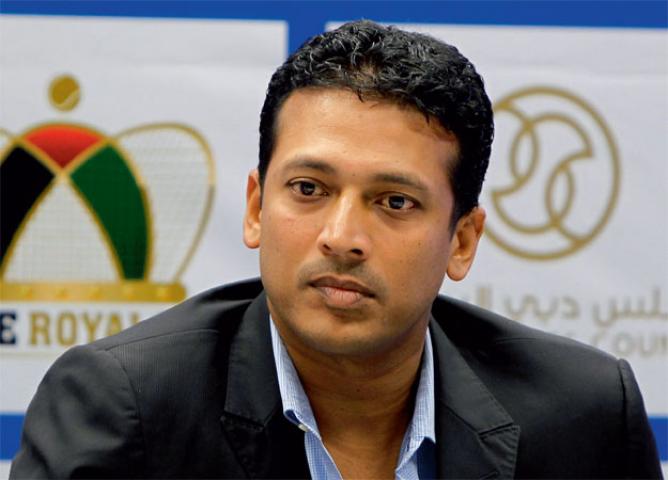
Mahesh Bhupathi
- Rajaj
- Harry Truman
- Homi Bhaba
- Alexader the Great
- Charles de Gavlle
- King George VI
- Anji Reddy, Chairman – Reddy Labs
- Joe Caseino – AIG Insurance
- Erin calling – Lehmans
- John Paulson – J.B.Morgan
- Kyle Bass – (Heyman capital)
- Meredith Whitney
- Mahesh Bhupathi (Tennis)
- Rahul Bajaj
- Mehul C. Chokshi (M.D Gitanjali gems)
- Rich Lesser – (CEO – Boston consulting group)
- Andy Cohen
- Diana Haskins
- David Gensber
- Mike Carson
- Michael Dell
- Sunitha Sharma (M.D LIC Home Finance
- J.Mithra
- Rangabhashyam
- Jane Mc Gonigal
- Indra Nooyi
~~~~~
The first task of teachers is the cultivation of virtue in the hearts of the pupils. – Sri Sathya Sai Baba
(Place your comment/view about the article above.)




